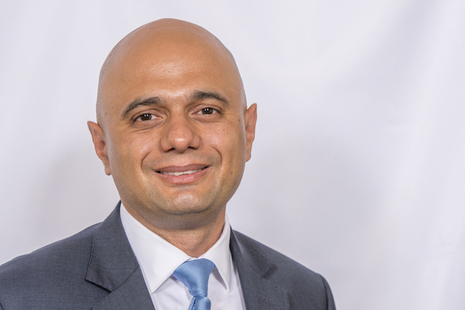latest
Sajid Javid describes split in NHS digital leadership as ‘odd’
The health and social care secretary has hinted that the current leadership of NHS England’s digital strategy is likely to be reformed
Although we’ve seen some phenomenal work on digital transformation during this pandemic from so many people, it does strike me as a bit odd...that digital leadership is currently split between NHSE, NHSX and NHS Digital.” Sajid Javid, health and social care secretary
Health and social care secretary Sajid Javid has described the way digital technology is led in the NHS as “odd”.
Addressing the NHS Providers conference, he said: “Although we’ve seen some phenomenal work on digital transformation during this pandemic from so many people, it does strike me as a bit odd, let’s say, that digital leadership is currently split between NHSE, NHSX and NHS Digital.”
Seeming to imply that the leadership structure might change, he went on: “I’m very interested in seeing how we can bring together critical decision makers, whether it’s at a local or national level.” He added: “And this is something that Laura Wade-Gery is looking at in her review.”
Last year Wade-Gery was commissioned by the then health secretary Matt Hancock to review the NHS’s technology leadership. It was originally due to be published late in 2020, but has been delayed, possibly because its recommendation to create an entirely new Transformation Taskforce, rather than merge existing agencies, did not meet with Hancock’s approval.
Javid also told the conference that the health system would need a “strong sense of direction” to recover from the pandemic and he would investigate whether the NHS “has what it needs” to deliver change.
Referring to the review of NHS leadership announced last month, he said: “We need the best possible leadership in place. The coronavirus pandemic has been a test of leadership in so many ways, and so many leaders in the NHS have risen to the occasion.”
The right care in the right place at the right time
Javid also said that he was interested in “how we can bring together critical decision makers, whether it’s at a local or national level.” The Health and Care Bill, which would “bring the right people and organisations to improve the health and wellbeing of their areas through Integrated Care Systems” was an example of that kind of shift, he said.
He added that the forthcoming White Paper on integration “will go even further.” The paper will “set out our proposals for how health and care can work better as one. How we can stop patients from being bounced around different parts of the system, provide the right care, in the right place, at the right time and make it easier for all of you to do your jobs.”
It was necessary, he said, to plan more effectively for the long-term, “with shared strategies and clear accountability for delivery” as well as “far-reaching plans that shun short-termism and look at what fundamental changes we need, looking far beyond the life-cycle of a single parliament.”
